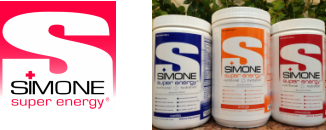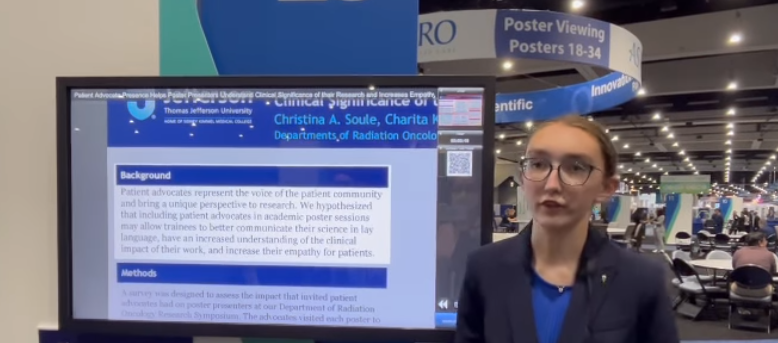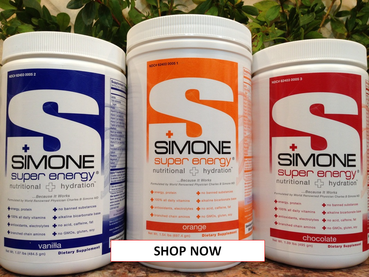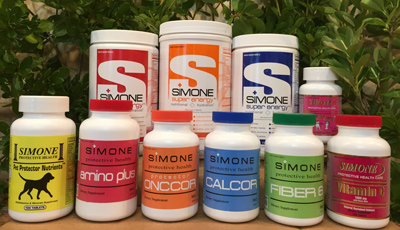We do not diagnose disease or recommend a treatment protocol or dietary supplement for the treatment of disease. You should share this information with your physician who can determine what nutrition and disease treatment regimen is best for you. Ask your physician any questions you have concerning your medical condition.
You can search this site or the web for topics of interest that I may have written (use Dr Simone and topic).
“We provide truthful information without emotion or influence from the medical establishment, pharmaceutical industry, national organizations, special interest groups or government agencies.” Charles B Simone, M.MS., M.D.
THE PRESENCE OF PATIENT ADVOCATES HELPED PRESENTERS INCREASE SYMPATHY AND UNDERSTANDING OF THE CLINICAL SIGNIFICANCE OF THEIR RESEARCH
https://tinyurl.com/s3w74a82
Researcher, Christina Soule
Annual Meeting Scientific Program Committee of the American Society for Radiation Oncology (ASTRO), it is our pleasure to inform you that your abstract has been selected for presentation as a POSTER during the 2023 Annual Meeting being held October 1 – 4, 2023 at the San Diego Convention Center in San Diego.
https://youtu.be/nWxiNArTZQI
https://youtu.be/XNFqrsvft04?si=iQchRelyQTHUIKKc
ABSTRACT for American Society for Radiation Oncology (ASTRO) October 1 – 4, 2023
The Presence of Patient Advocates Helped Presenters Increase Empathy and Understanding of the Clinical Significance of their Research
Authors: Christina A. Soule, Charita Kunta, Amy Leader, Adam P. Dicker, Nicole L. Simone
Purpose: Patient advocates represent the voice of the patient community and bring a unique perspective to research. We hypothesized that including patient advocates in poster sessions may allow trainees the ability to communicate their science in lay language, have an increased understanding of the clinical impact of their work, and increase their empathy for patients.
Methods: A survey was designed to assess the impact that invited patient advocates had on poster presenters at our Department of Radiation Oncology Research Symposium. The advocates visited each poster to discuss the project goals and outcomes with all 16 researchers who included graduate/medical students, postdoctoral fellows (including medical and physics residents), laboratory assistants and faculty. The survey included questions about presenter demographics, their ease in discussing research and use of lay language, the impact of the advocate on increasing the presenters empathy for patients, understanding better the clinical significance of their work, and possible future impact of advocates in complementing their research.
Results: Following the poster session, 14 of 16 participants completed the survey. Respondents were 57.1% male, 57.1% younger than 30yo, and 50% people of color. Poster presenters comprised: 35.7% Graduate/Medical Students, 42.9% Medical/Physics Residents or Postdoctoral Fellows, 14% Faculty, and 7% laboratory assistants. All respondents agreed/strongly agreed that they were comfortable talking to advocates. Overall, 42.8% of participants strongly agreed that they were able to talk to the patient advocate in lay language. 85.7% of participants agreed/strongly agreed that their empathy for patients increased by this interaction. Although 92.9% of poster presenters believed patient advocates were able to help them understand the clinical significance of their research and 71.4% believed they were able to help them think of ideas to compliment their research, 57.1% did not believe advocates could help them identify novel conclusions from their work. Most respondents would like advocates at future poster presentations (92.9%), but they were not as sure that they would like to have them participate in study design or data analysis. Women, people of color and graduate/medical students were most comfortable communicating their research in lay language, believed their empathy for patients increased and had increased understanding of the clinical significance of their work.
Conclusions: These results indicate that including patient advocates in poster sessions help our trainees improve their ability to present their research in lay language, increase their empathy and understand the clinical impact of their research. Workshops should be considered to help young scientists communicate their science in lay language. Future radiation oncology training should consider inclusion of the patient advocate voice to improve the tangible connection between research and real-world impact.
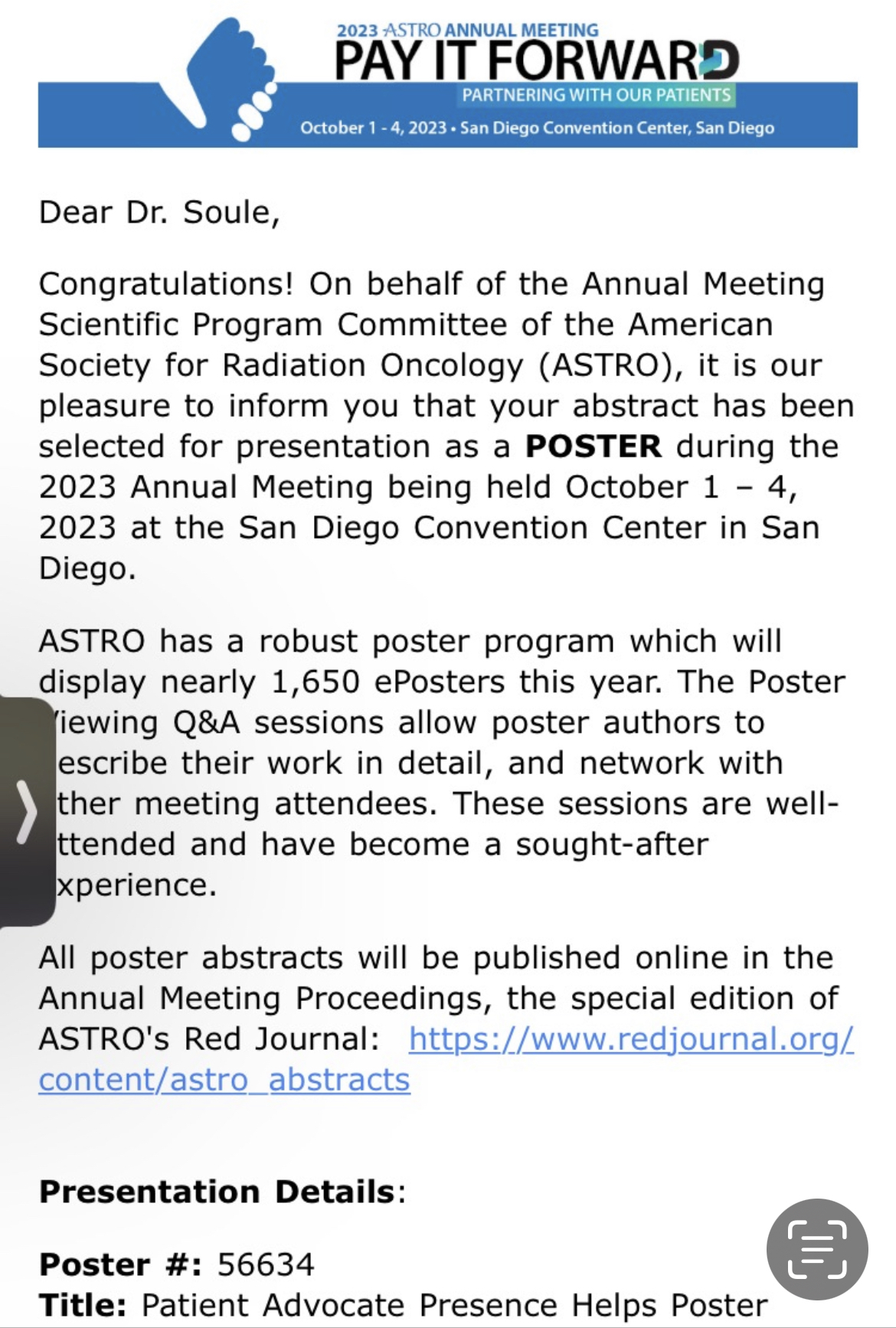
Title: Patient Advocate Presence Helps Poster Presenters Understand Clinical Significance of their Research and Increases Empathy
Presenter: Christina Soule
Author block: Christina Soule, Charita Kunta, Amy Leader, Adam Dicker, Nicole Simone
Poster Viewing Q&A Session Time: Sunday, October 1, 4:45 PM-6:00 PM
SEPTEMBER 2023 – CHRISTINA SOULE PRESENTED HER RESEARCH AT JEFFERSON
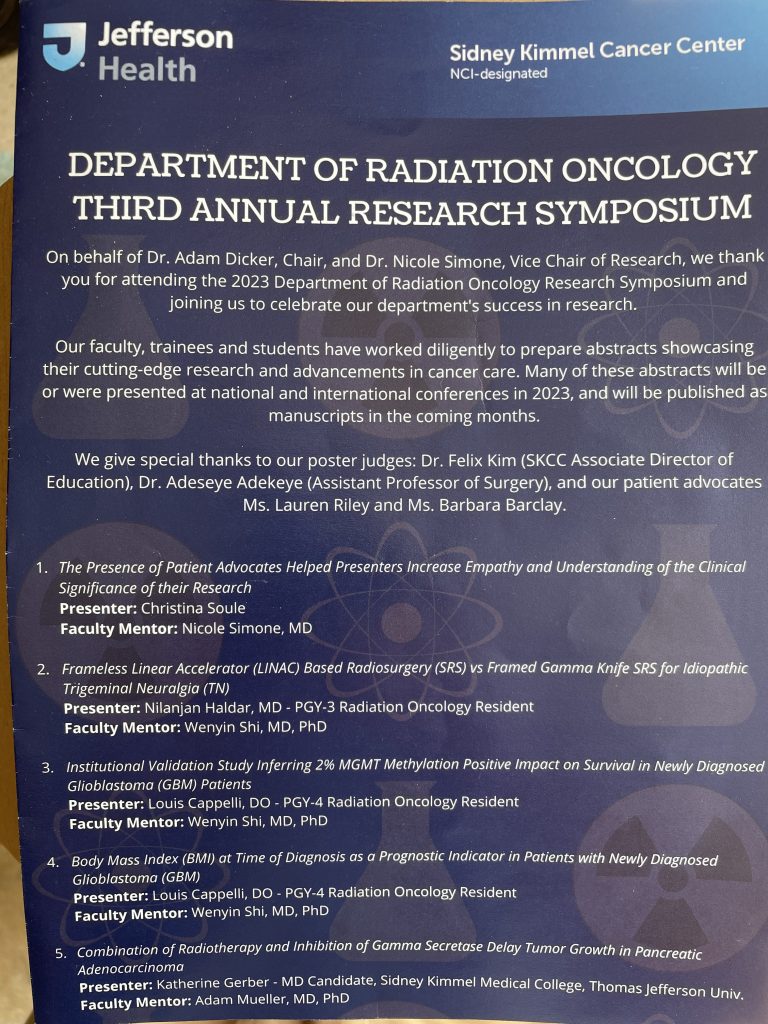
SEPTEMBER 2024 – CHRISTINA SOULE PRESENTED HER UPDATED RESEARCH AT JEFFERSON and NICHOLAS PRESENTED HIS RESEARCH
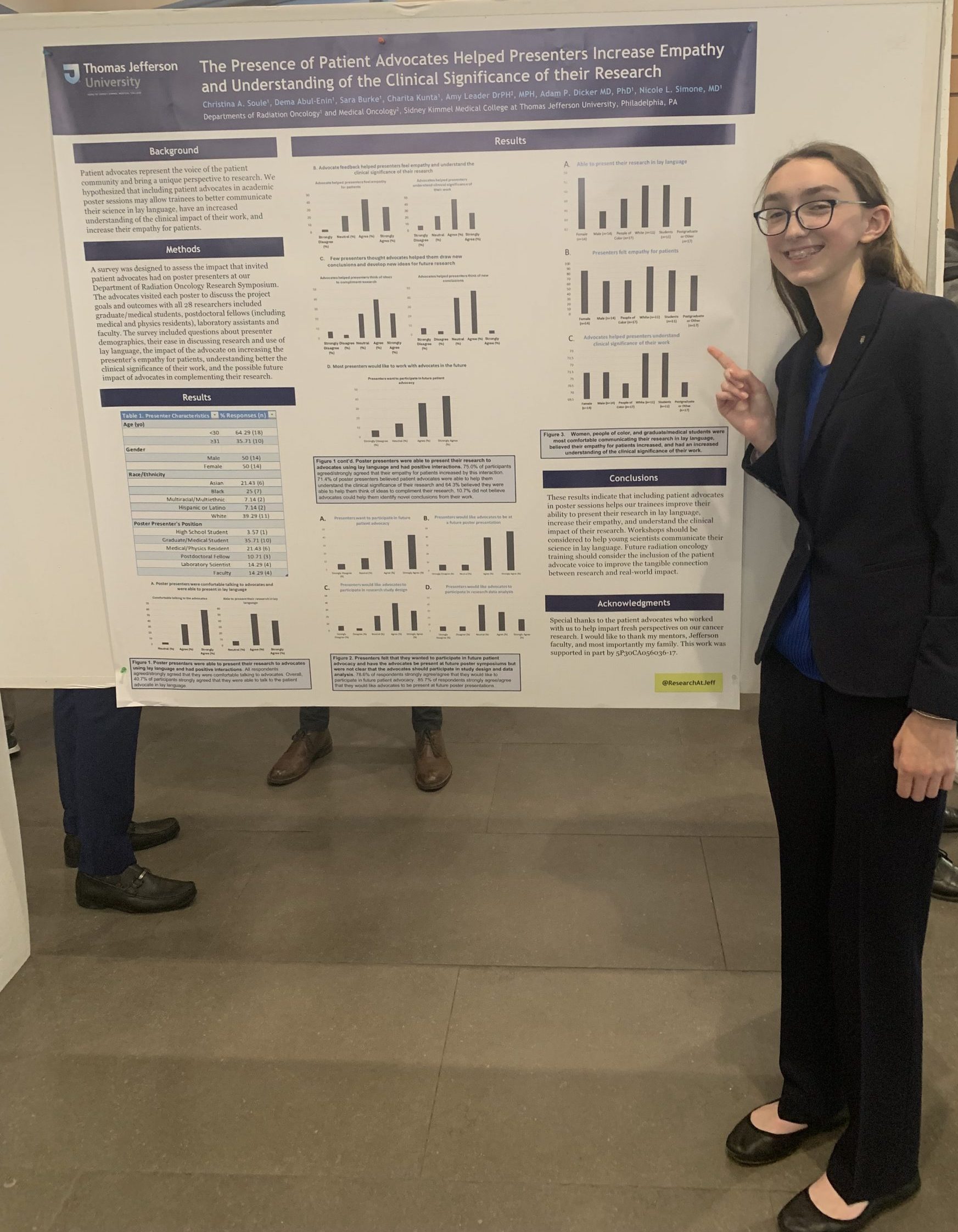
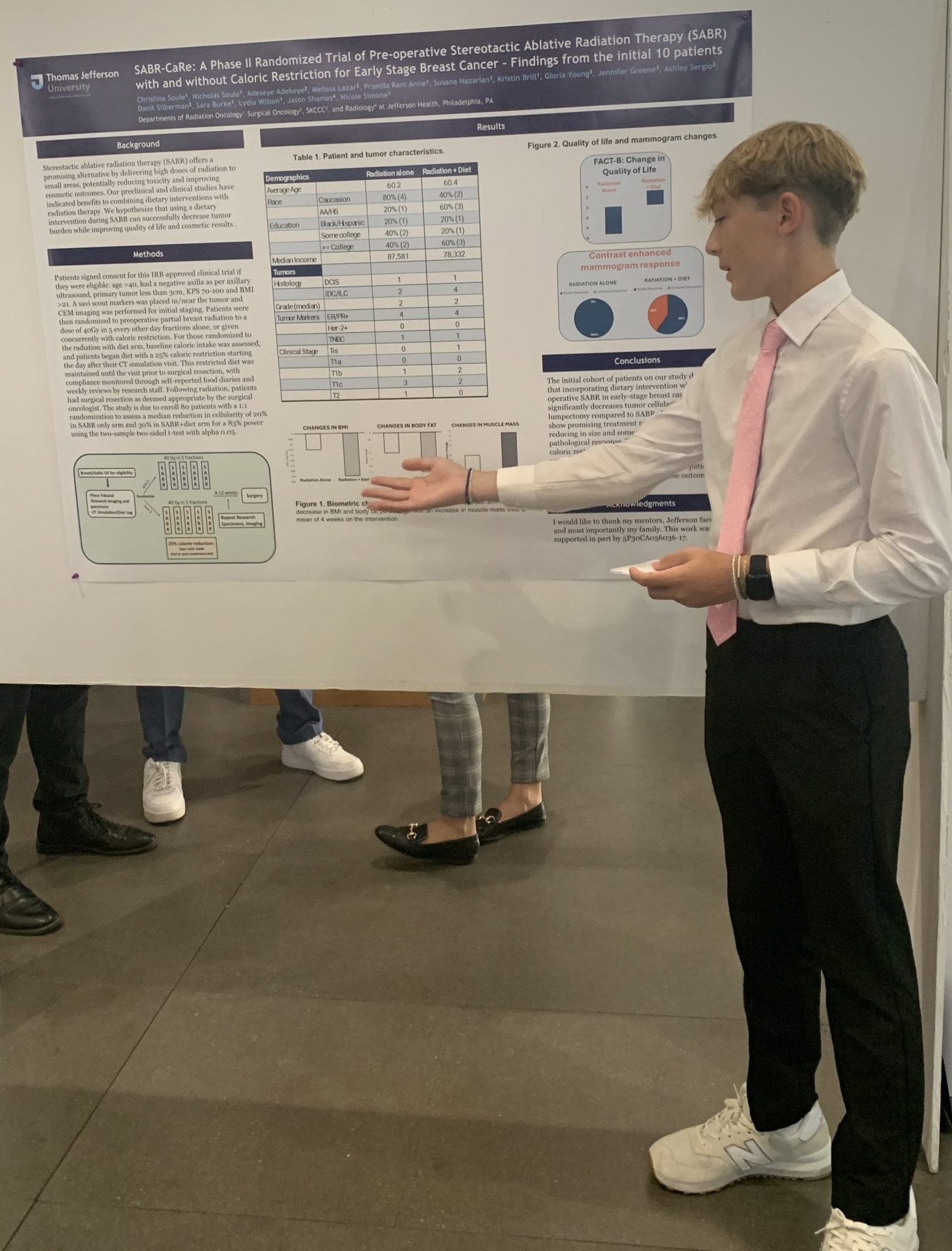
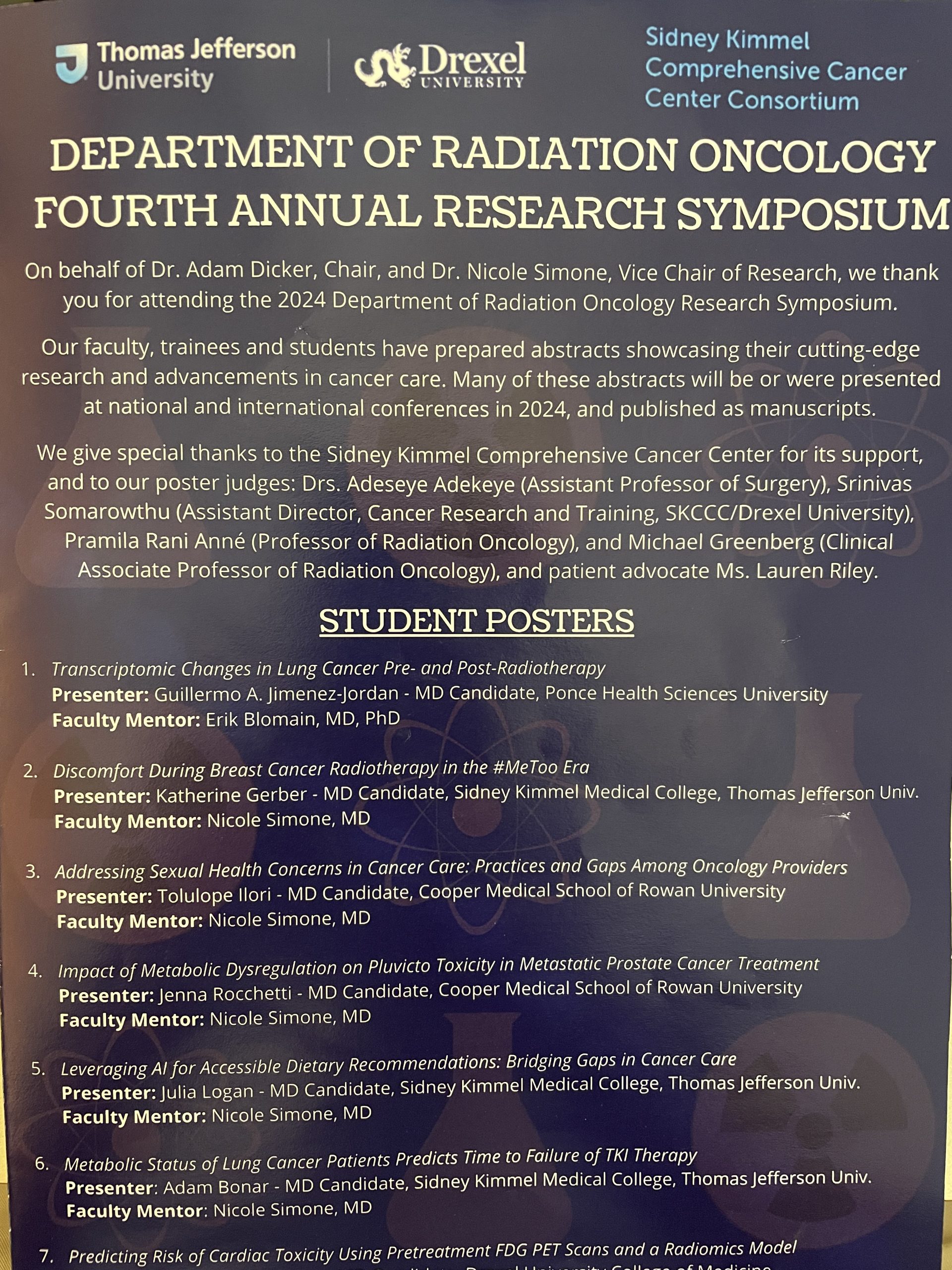
Gary Hoffman presents to Christina Soule the Eighth Grade Award for entire Mount Laurel Region – Time marker 6:23 to 8:05
